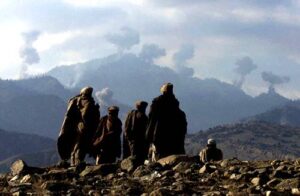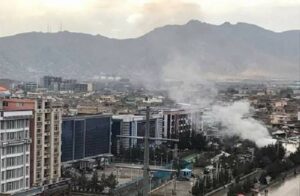.jpg)
KAUBL (SW): All cell phone users see the following message on their phone since the beginning of the solar year 1394: “According to the provisions of the law on telecommunications services of the Islamic Republic of Afghanistan, on the first day of 1394, ten percent of the telecom income from the amount of credit crunch from the customers of all telecommunication companies has been set aside and transferred to government account.”
This law was controversial since it started and brought criticism of the residents and the civil society along with it. Some criticized the president’s legislative decree, and some doubted the transparency in the process of collecting, transferring and storing the income tax money by telecommunication companies.
The Ministry of Finance had proposed the collection of this tax to the cabinet. After the approval of President Ghani this plan was implemented. According to the figures provided by the Ministry of Communication, over 23 million mobile phones and more than 100 thousand cellular phones are used throughout Afghanistan.
Now that two years are passed since this decree was first issued, the House of Representatives (lower), revoked the decree in a meeting on Wednesday 19 Mezan of solar year 1396 due to the “lack of transparency in the process of collecting taxes from the credits of the consumers of telecommunication users”.
.jpg)
In this regard, I first spoke with Abdul Rauf Awami, a member of the lower House of Representatives. He said that according to their information, nearly 50% of the tax on telephone cards of the subscribers of telecommunication has been grafted; means that on the one hand, real incomes have not been paid into the government treasury, and on the other hand, public funds have been wasted.
I walked along with the pedestrians in the city to talk to them and get their opinion, and I saw a man who was walking slowly. Murtaza Ahmadyar, who is an employee of a private company, said that corruption in the government departments, especially in the economic and financial sectors, in addition that has hurt the national income, has also caused people to become distrustful of the government.
According to Ahmadyar, the government has the right to tax, which is why he initially welcomed the issuance of the decree. But he said he began to doubt that this money really went to the account of the government. Ahmadyar urged the government to control the process of collecting and transferring taxes to the government treasury.
Samira Naseri, another Kabul resident, said that the government received 5 Afghani out of 50 Afghani telephone card and put it in the hands of the traffickers, traitors, who are the owners of the private telecommunication companies. She said that she is ready to pay 10 Afghani instead of 5 Afghani as taxes but if the tax system is transparent and the money is spent for the government and for the people.

To investigate further and to find out about the fate of this law, I talked with Najib Nangyalai, the spokesperson of the Ministry of Telecommunications. Mr. Nangyalai said that the decision of the (lower House of Representatives) has to pass two other stages; the Senate has to pass it and the President has to approve it; therefore this law is still enforceable.
Mr. Nangyalai said that the lack of a transparent system is the main reason for the termination of 10 percent tax on the credit for telecom subscribers. The new system is under work and has been sent to the procurement commission.
The service sector has the highest GDP shares in Afghanistan. Hasibullah Mowhed, technical deputy director of the Central Statistics Organization, said that the share of services in 1392 was 51.7 percent, in 1393 was 51.8 percent, in 1394 was 52.5 percent, and in 1395 was 51.6 percent. According to Mr. Mowhed, distributing about 20 million SIM cards and providing internet services, the activities of schools, universities and private hospitals, hotel businesses and aviation services constitute an important part of the service industry.
The legislative decree of the president faced a tragic fate. The poor Afghan citizens, with skepticism, initially supported the decree and hoped that they would help their country with small amount, but didn’t know that they still have corruption in front of them, he added.
ENDS





